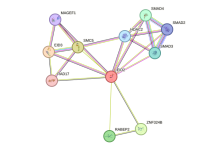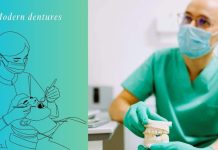What are the top 5 Bruxism causes?
Bruxism is a dental disorder characterized by teeth grinding and clenching. While the cause of Bruxism is unknown, several factors may contribute to its development. This article will go through the top five causes of Bruxism. Stay tuned for tips on how to prevent this condition from occurring.
What exactly is Bruxism, and what are its symptoms?
Bruxism is a condition that leads to teeth grinding and clenching. Bruxism’s specific cause is unclear. However, various variables may contribute to its development. These include stress, genetic predisposition, misaligned teeth, and substance abuse. Bruxism can happen anytime; symptoms include headaches, jaw pain, earache, and facial pain.
What develops Bruxism, and how can it be treated?
The cause of Bruxism is unknown. However, various variables may contribute to its development. Bruxism can be treated with several methods, including behavioral therapy, mouth guards, and medications.
What are the top five bruxism causes?
The five most common bruxism causes are stress, genetic predisposition, misaligned teeth, substance abuse, and sleep disorders. If you experience any of these characteristics, it is critical to contact a doctor or dentist so that any other probable reasons may be ruled out and a treatment plan can be developed.
-
Stress: Stress is among the most prevalent causes of Bruxism. When stressed, we may unconsciously clench our jaw or grind our teeth. It can lead to the development of Bruxism. To treat Bruxism caused by stress, finding ways to reduce stress in your life is essential. It may include exercise, relaxation techniques, and counseling.
-
Genetic predisposition: Another cause of Bruxism is a genetic predisposition. If you have Bruxism family members, you will likely develop the condition. Bruxism has no cure. However, some treatments really can help you manage the symptoms.
-
Misaligned teeth: Misaligned teeth can also contribute to the development of Bruxism. When our teeth are not correctly aligned, we may grind or clench them to compensate for the misalignment. It can lead to the development of Bruxism. If you have misaligned teeth, your dentist may recommend braces or other treatments to correct the problem.
-
Substance abuse: Another possible cause of Bruxism is substance abuse. Substance abuse can include the use of alcohol, tobacco, or drugs. These substances can lead to the grinding or clenching of the teeth. If you are battling substance abuse, it is vital to seek help from a professional to get treatment.
-
Psychologic Disorders: Several psychological disorders have also been linked to Bruxism. These disorders include anxiety, depression, and obsessive-compulsive disorder (OCD). If you suffer from any of these disorders, it is essential to seek help from a mental health professional to get treatment.
Bruxism is a condition that several different factors can cause. The most common causes are stress, genetic predisposition, and misaligned teeth. If you believe you have Bruxism, it is essential to see your dentist so that they can diagnose and treat the condition. Several treatment methods are available, and the best course of action will depend on the underlying cause of your Bruxism.
How to prevent Bruxism damage to your teeth
If you have Bruxism, it is essential to take steps to protect your teeth from damage. It may include wearing a mouth guard at night, avoiding hard foods, and practicing stress-relieving techniques. If you follow these steps, you can help prevent the growth of Bruxism and keep your teeth healthy.
What are the long-term effects of Bruxism?
Bruxism can cause several long-term effects. It includes damage to the teeth, jaw pain, headaches, and earaches. If left unchecked, Bruxism can lead to significant dental issues. Therefore, seeing your dentist if you think you may have Bruxism is essential so that treatment can be started as soon as possible.
What can you use to prevent Bruxism?
Many different methods can be used to prevent Bruxism. These include behavioral therapy, mouthguards, and medications. The best prevention method will vary depending on the underlying cause of your Bruxism. However, taking steps to reduce stress in your life often prevents Bruxism. Additionally, using a mouth guard at night might help prevent damage to your teeth from clenching or grinding.







